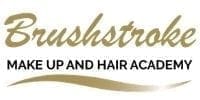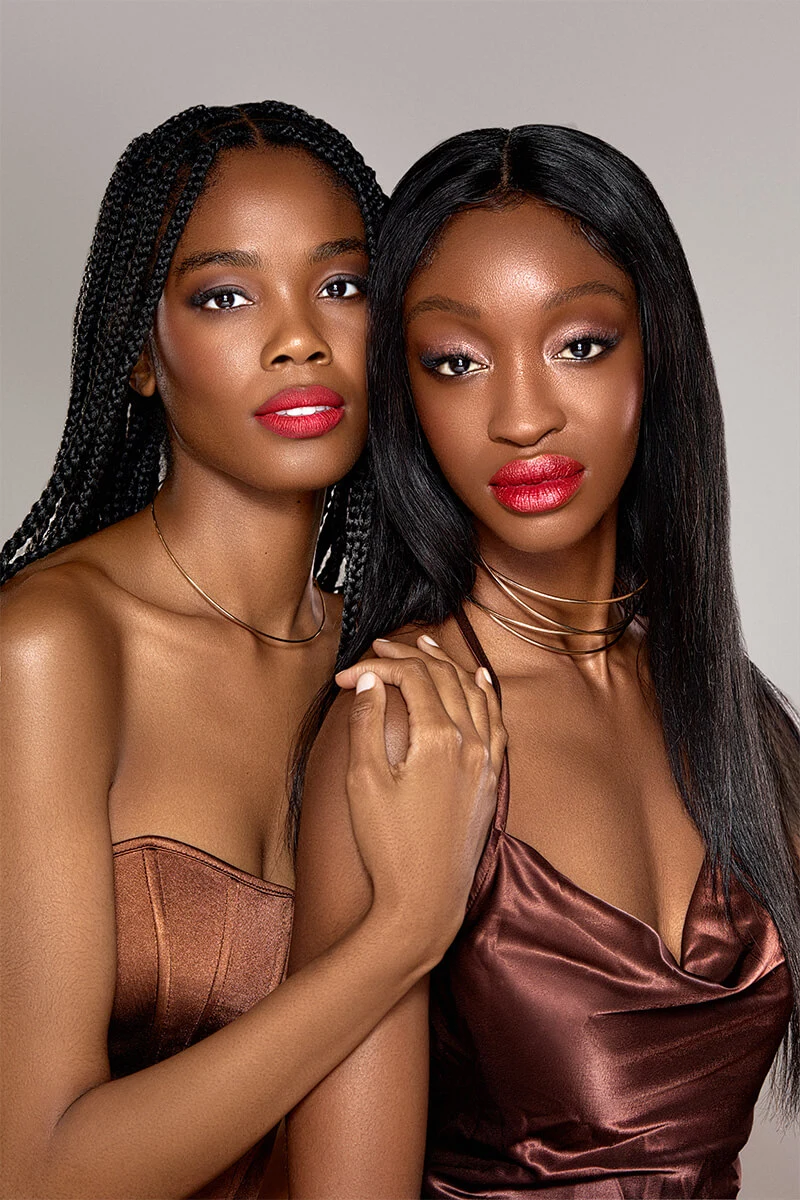Is It Worth Taking Makeup Classes?
Aspiring makeup artists are increasingly turning to formal education to build their careers, seeking courses that offer not only aid skill enhancement but also a provide a competitive edge in the employment market. This rise in interest shows a growing recognition of the value of certified makeup artistry training in an industry that prizes precision and creativity.
Why is it Worth Taking Make-up Courses?
In this article, we look at professional makeup classes, examining the worth and return on investment for carving out a career in makeup and hair. With such a wide range of education oppertunities on offer, we explore whether enrolling in makeup courses truly pays off for aspiring makeup artists. Our discussion will consider various aspects of professional training, aiming to provide a comprehensive understanding of its benefits and drawbacks.
Changes in Makeup Education
The makeup education landscape has transformed dramatically over the years, with a notable trend toward more individuals pursuing professional makeup courses. This shift is not just about acquiring new skills; it’s about embracing an industry-standard professionalism that only structured education can provide. Institutions like Brushstroke Makeup School have been at the forefront of this educational trend, offering comprehensive courses that do more than just teach makeup techniques – they sculpt industry-ready professionals.
Brushstroke, a leading London Makeup Academy, plays a pivotal role in the beauty sector, not just by elevating individual careers but by setting benchmarks for industry practices and expectations. With our rigorous curriculum, they ensure that graduates are not only proficient in makeup artistry but also well-versed in the makeup industry’s hygiene standards, product knowledge, and client relations. This holistic approach to makeup education underpins the growth of the industry by ensuring a steady influx of qualified professionals who adhere to high standards.
The growth in the beauty industry, which is fueled by these educational advances, promises opportunities not just domestically but globally. Schools like Brushstroke have become beacons of excellence, attracting students from across the world and placing them in internships and jobs within bustling markets like film, television, and fashion. This global perspective not only enriches the learning experience but also prepares students to operate on an international stage.
Types of Makeup Courses Available
The range of makeup courses available today caters to every level of aspiration, from beginners seeking foundational knowledge to seasoned professionals aiming to specialise further. At top-tier institutions, prospective students can choose from a diverse menu of courses tailored to various facets of the industry, including television, film, fashion, and theatrical makeup.
For newcomers, foundational courses are crucial. These typically focus on the essentials of makeup artistry, covering everything from basic application techniques to understanding colour theory and skin types. Foundational courses lay the groundwork for all future learning and specialisation.
As students progress, they can opt for advanced diploma programs that delve into more complex aspects of makeup artistry. These courses often include detailed work on special effects makeup, high-fashion editorial looks, and intricate bridal styles. For those interested in the entertainment and media industries, specialised courses offer training in makeup for high-definition television and film, preparing artists for the unique challenges posed by different on-screen media.
The value of these courses is enhanced by their accreditation. Leading makeup schools often provide programs certified by recognized bodies such as BTEC, ITEC, HND, HNC and VTCT. These qualifications not only affirm the quality and rigour of the curriculum but also greatly enhance a graduate’s credentials in the competitive job market. A BTEC Level 3, for instance, is highly regarded and can open doors to numerous opportunities in the beauty industry, both in the UK and internationally.
Choosing the right course ultimately depends on a student’s career goals and interests. Whether aiming to become a freelance wedding makeup artist or a professional in a television studio, there’s a course designed to equip each student with the skills, knowledge, and qualifications needed to succeed in their chosen path.
Benefits of Enrolling in Makeup Classes
Enrolling in professional makeup classes offers a plethora of benefits that go beyond the mere acquisition of artistic skills. These courses are structured to immerse students in the world of professional beauty, adhering to the highest industry standards, and providing access to expert instructors and top-tier products.
Professional Training
One of the primary advantages of formal makeup education is the adherence to professional standards. Makeup classes in reputable institutions operate under strict industry protocols, teaching students not only the craft of makeup but also the ethics of working professionally. This includes aspects such as maintaining hygiene, understanding the anatomy of the skin, and managing client relationships effectively.
Access to high-quality products is another significant benefit. Students get hands-on experience with professional makeup kits featuring high-end products that are often out of reach for beginners due to cost. This exposure is crucial, as familiarity with a broad range of tools and products can significantly affect the quality and efficiency of a makeup artist’s work.
Expert instructors with years of industry experience also guide students through their learning process. These professionals bring real-world insights and techniques from the field, providing students with current trends and practices that textbooks alone cannot offer. This mentorship is invaluable for students looking to make a name for themselves in the competitive beauty industry.
Career Opportunities
Formal training significantly expands a student’s career opportunities. Graduates from accredited schools like Brushstroke are often recognised and respected within the industry, which can open doors to working in prestigious studios and productions. These institutions frequently have connections with film, television, fashion, and theatre companies, providing a network that can lead to internships and job placements upon completion of the course.
Additionally, the structured environment of makeup classes allows for comprehensive career preparation, including portfolio development. A well-crafted portfolio showcasing a variety of styles and techniques is essential for capturing the attention of potential employers or clients. Many schools also assist with job interviews and resume building, further helping students to secure positions in sought-after workplaces.
Networking and Beyond
Finally, makeup classes often serve as a networking hub, connecting students with industry professionals, alumni, and like-minded peers. These connections can be instrumental in building a successful career in makeup artistry, offering ongoing support and opportunities for collaboration.
In short, the benefits of enrolling in professional makeup classes are manifold. From mastering the craft under the guidance of experienced professionals to gaining access to a network of industry contacts, these courses equip aspiring makeup artists with the tools they need to succeed and thrive in the dynamic world of beauty.
Practical Experience Gained
One of the most compelling aspects of professional makeup courses is the practical experience that students gain, which is vital for their development as skilled artists. These courses emphasise hands-on learning, allowing students to apply theoretical knowledge in real-world scenarios. This approach is essential for mastering the art of makeup under the varied demands of professional settings.
Hands-On Learning
Professional makeup courses offer an immersive experience that goes beyond textbook learning. Students spend a significant amount of time working directly on models with diverse skin types and conditions. This exposure is crucial, as it helps students understand how different products interact with different skin tones and textures, and how to tackle unique challenges like allergies or sensitive skin. Moreover, working on a variety of faces allows students to build a versatile skill set, from creating flawless natural looks to more dramatic and artistic expressions.
Studio Environment
Training in renowned studios such as Longcross and Elstree significantly enhances this practical learning. These studios provide a backdrop that mimics the pressures and dynamics of actual film and TV sets, fashion shows, or theatre productions. Students learn to work in the fast-paced, sometimes chaotic environments that characterise real industry settings. This not only hones their technical skills but also teaches them about set etiquette, teamwork, and the ability to deliver under tight deadlines.
Being in such high-profile studios also offers students the unique opportunity to observe and sometimes participate in professional shoots and productions. This invaluable experience gives insights into professional workflows and what is expected of makeup artists in various segments of the industry.
Real-World Application
The combination of direct practice on diverse models and the experience gained in a studio environment prepares students exceptionally well for the demands of the makeup industry. They leave the courses not only with enhanced skills but also with increased confidence to enter any professional makeup setting. This real-world applicability is what sets apart graduates of top-tier makeup schools and allows them to stand out in the competitive field of makeup artistry.



